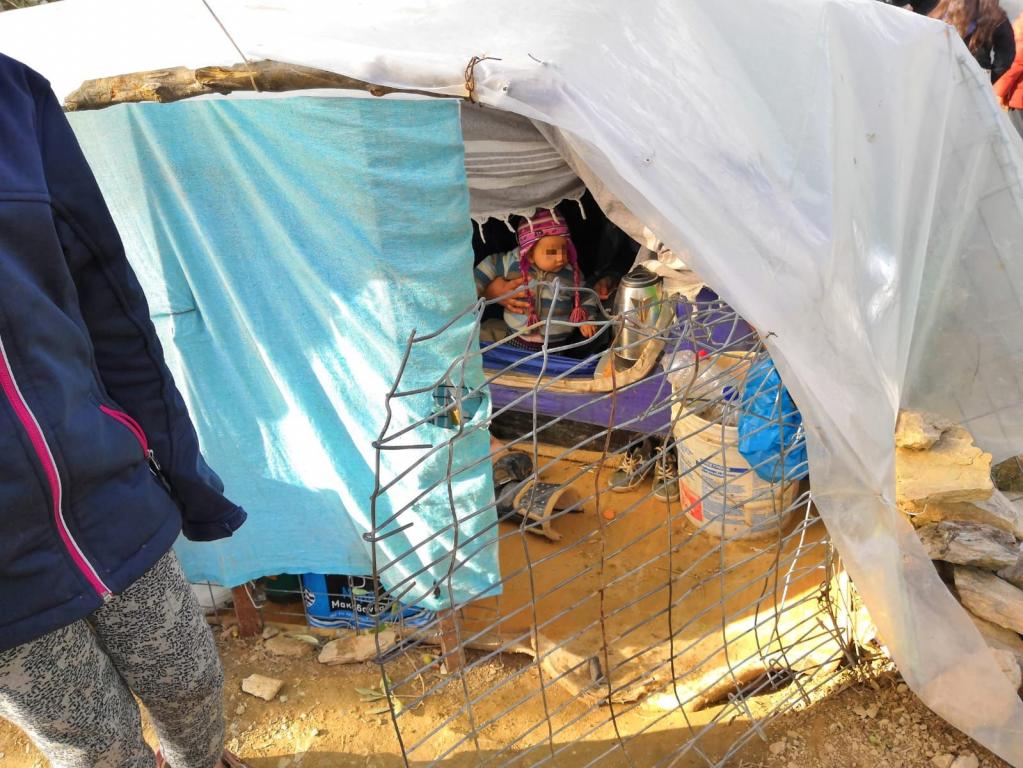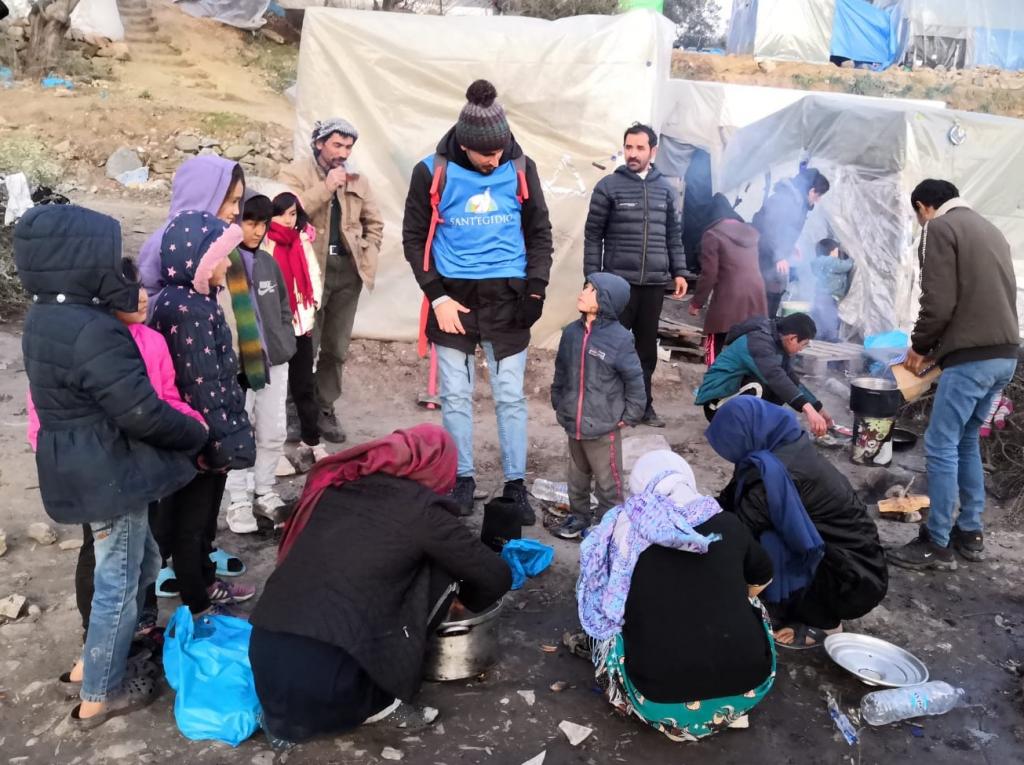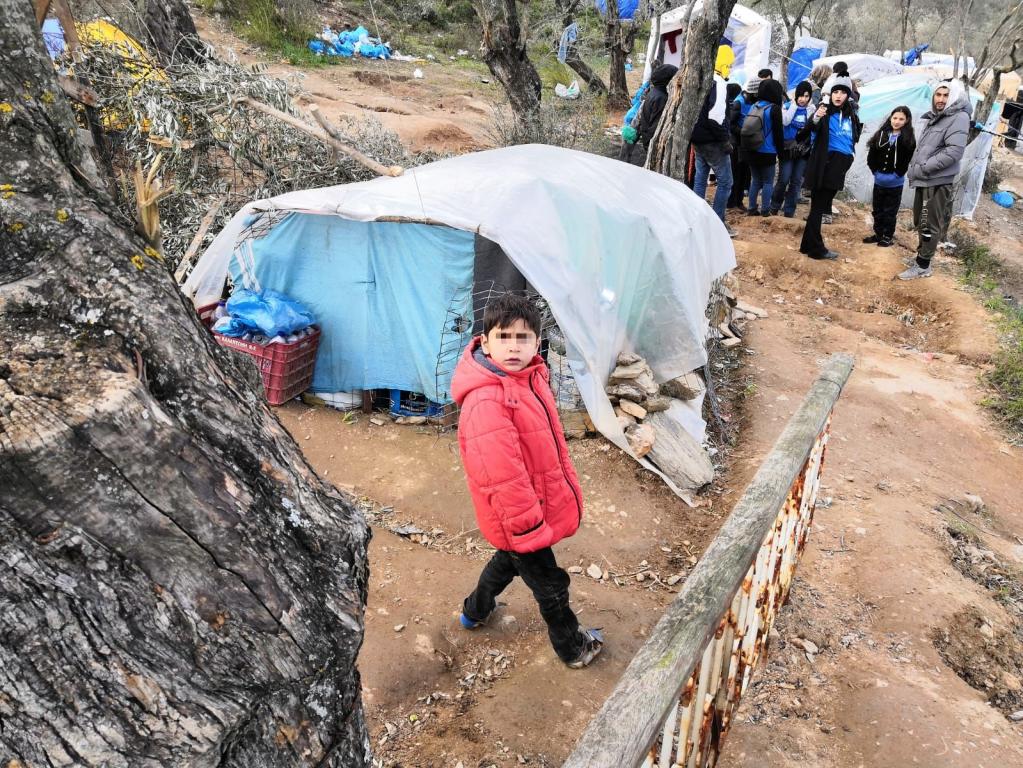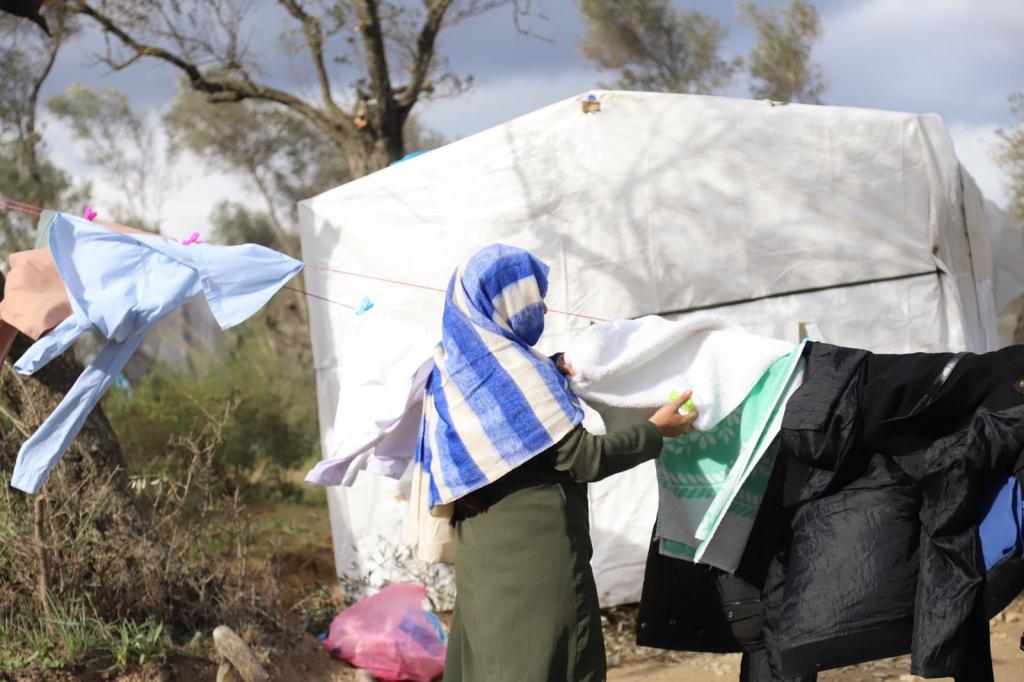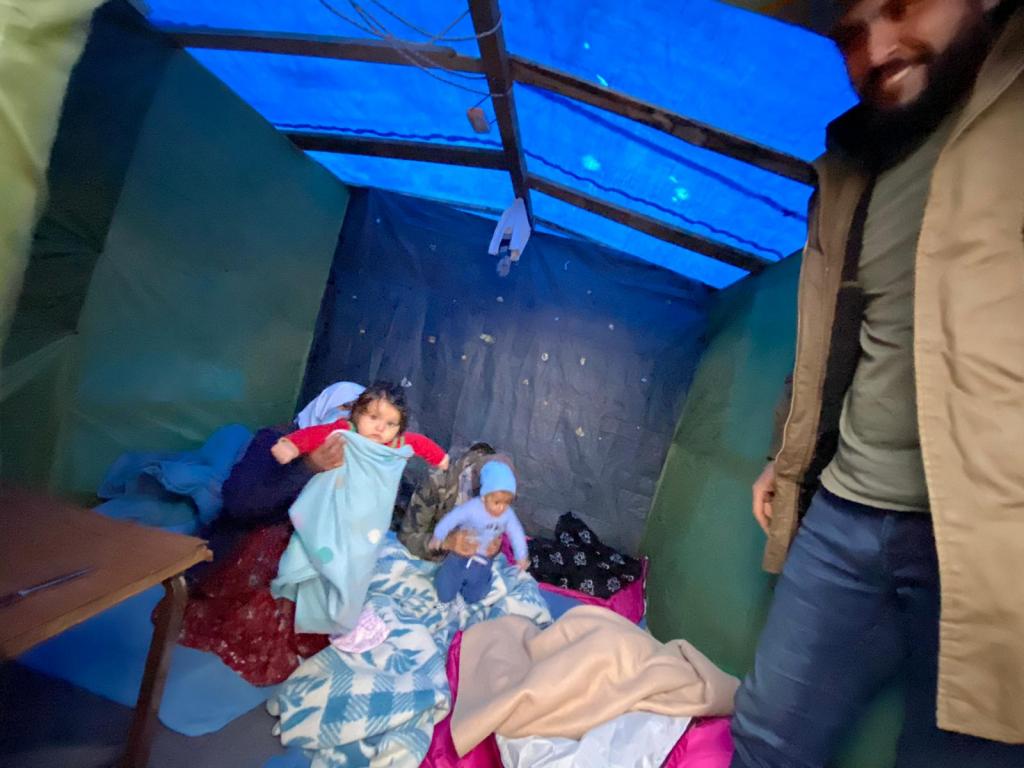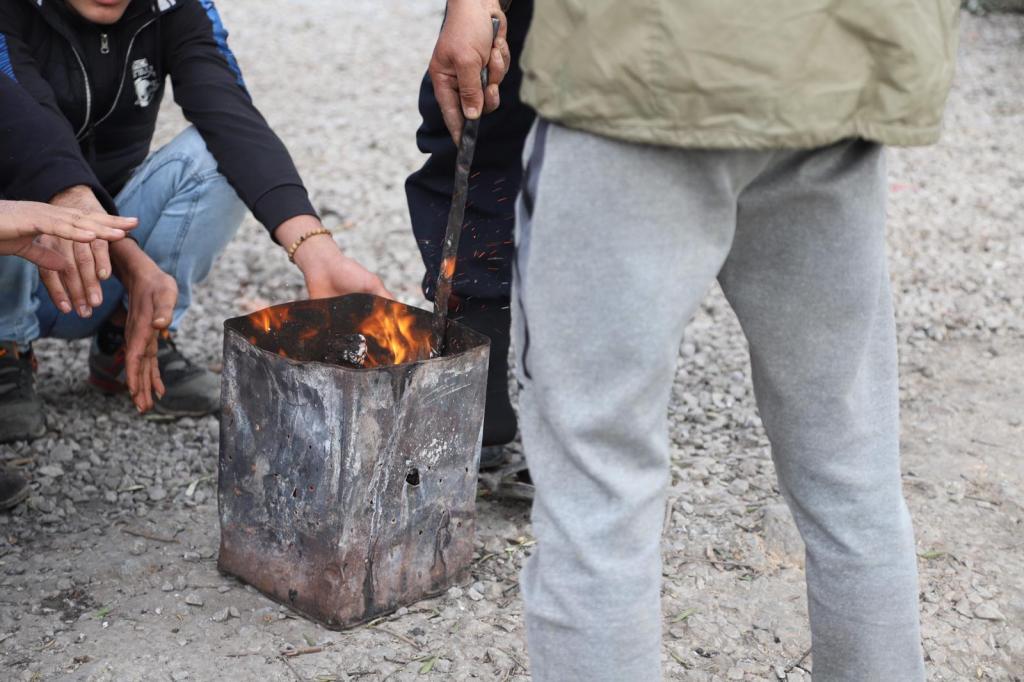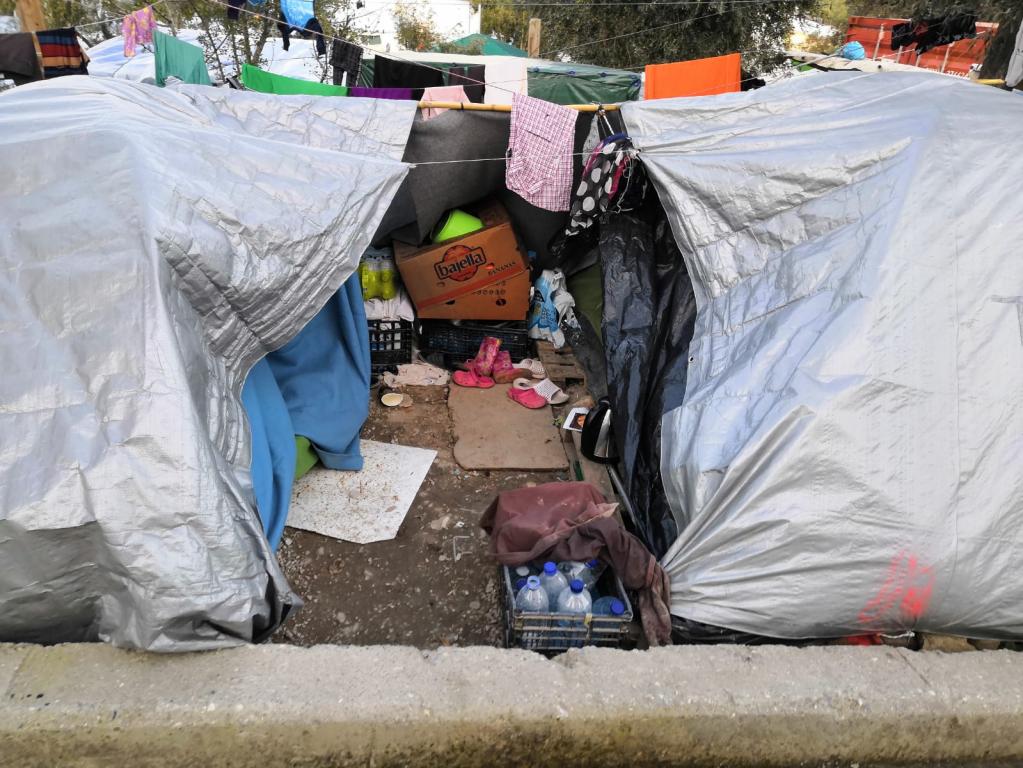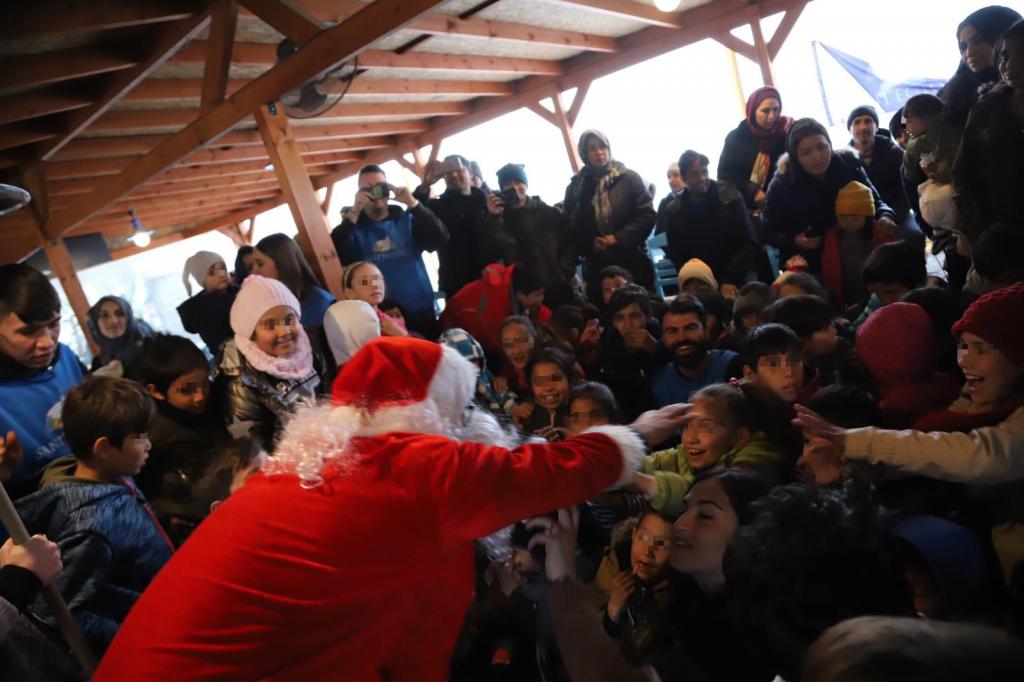In the refugee camp of Moria thousands of people live in tents in what is often referred to as the "jungle." a hill full of olive trees, near the hotspot on the Greek island of Lesbos.
Among the many stories, we met on our last trip during the Christmas holidays is that of Fatima, mother of three children who recently arrived from Syria. Her face lights up as she tells the beauty of Aleppo, a city that she had resisted leaving as long as she could, but that she ultimately had to abandon together with her husband and sister. Having heard news of the difficulty of traveling on the Balkan route, they took the dangerous sea route to arrive in Lesbos. They did not know the situation of the Moria camp.
They live in six in a camping tent that can accommodate only three of them, so small that they cannot stand. To isolate themselves from the cold of the ground, especially on rainy days, they use blankets and carpets, which are perpetually damp. Among the greatest concerns are the health of the children, their education, the absence of schools where they can study, the desire for a dignified life, and a peaceful future.
Like many, they spend most of their time outside the tent, and light fires to warm themselves with olive branches detached from the trees, or to make endless rows for meals and showers, in a situation of extreme overcrowding.
Among the olive trees, however, run the children, one of the most numerous age groups in the camp. They spurt vitality in games and dances, as in the moments of celebration spent with the Community of Sant'Egidio. In a condition that is described by migrants as an "open-air prison" the hope of the children calls the consciences of Europe to awaken, "to keep their eyes open, to keep their hearts open" - as Pope Francis recently urged - "to remind everyone of the imperative commitment to save every human life, a moral duty that unites believers and non-believers."
Help Sant'Egidio continue to bring people safely into Europe by donating to our Humanitarian Corridors
Today's videos














